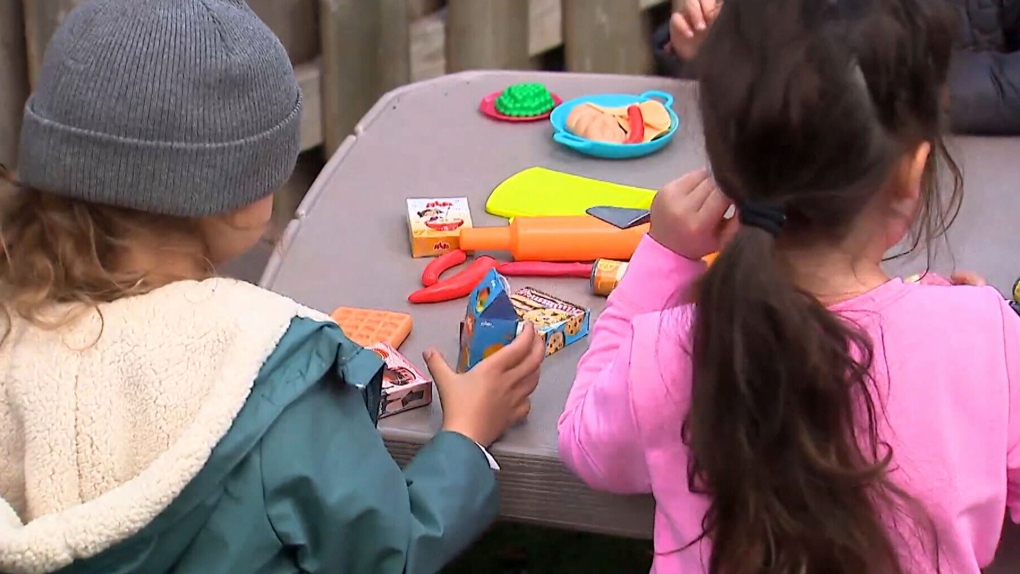Inuit child care law passed in Canada by Inuvialuit people first of its kind

On Nov. 24, the Inuvialuit people residing in the Northwest Territories (NWT) made history by passing their own law, making this the first time an Inuit Nation instigated a law in Canada.
The new child care law is called the Inuvialuit Qitunrariit Inuuniarnikkun Maligaksat, which translates to the “Inuvialuit Family Way of Living Law.”
The legislation was passed by the Inuvialuit Regional Corporation (IRC), the government representing the collective interests of the Inuvialuit in the N.W.T.
The new child care law now classifies Inuvialuit youth as “beneficiaries,” which is a member or descendant of someone represented by the IRC.
From now on, any beneficiaries entering child and family services will be supported to remain in their home community - unless there are exceptional circumstances.
This means that Inuvialuit youth anywhere in the country currently in child and family services will have the opportunity to return to the Inuvialuit Settlement Region (ISR), which consists of Inuvik, Aklavik, Paulatuk, Sachs Harbour, Tuktoyaktuk and Ulukhaktok.
The opportunity to create an Indigenous-run foster care system in the N.W.T. came after the Federal Government passed Bill C-92 in January 2020. The bill allows for First Nations, Metis and Inuit communities to take authority and transition towards “partial or full jurisdiction over child and family services at a pace that they choose.”
The new legislation in the N.W.T. will allow the IRC to create a new department that will be completely dedicated to child well-being and implementing the law.
According to a report from the Director of Child and Family Services (CFS), Indigenous people in the territory are grossly over-represented in the province's child and family services - with 98 percent of children in the foster care system being Indigenous.
However, only 57 percent of children and youth in the N.W.T are Indigenous.
Duane Ningaqsiq Smith, IRC chair, likened the effects of the Canadian foster care system to that of the Residential School system, saying, “Because of residential schools, the parents lost that communication with their children; some of them were taken away for years and when they went back home, they couldn't even speak the same language,” he said. “Then it just became a vicious cycle.”
The new law will also require all federal, territorial and provincial governments to meet the same standards when providing child and family services to Inuvialuit children - meaning that the IRC is now fully involved with any and all child welfare cases pertaining to Inuvialuit children.
N.W.T. Premier Caroline Cochrane stated that the new law is “a significant moment relating to child and family services reform in the NWT and across Canada. The Inuvialuit are the first Indigenous government in the NWT to ratify a child wellbeing law that will apply across Canada.”
“This law is a big step forward in ensuring decisions are made in the best interests of Inuvialuit children, youth and families, ” she concluded. “We are committed to continuing to work with the Inuvialuit Regional Corporation moving forward.”
CTVNews.ca Top Stories

DEVELOPING Man sets self on fire outside New York court where Trump trial underway
A man set himself on fire on Friday outside the New York courthouse where Donald Trump's historic hush-money trial was taking place as jury selection wrapped up, but officials said he did not appear to have been targeting Trump.
BREAKING Sask. father found guilty of withholding daughter to prevent her from getting COVID-19 vaccine
Michael Gordon Jackson, a Saskatchewan man accused of abducting his daughter to prevent her from getting a COVID-19 vaccine, has been found guilty for contravention of a custody order.
She set out to find a husband in a year. Then she matched with a guy on a dating app on the other side of the world
Scottish comedian Samantha Hannah was working on a comedy show about finding a husband when Toby Hunter came into her life. What happened next surprised them both.
Mandisa, Grammy award-winning 'American Idol' alum, dead at 47
Soulful gospel artist Mandisa, a Grammy-winning singer who got her start as a contestant on 'American Idol' in 2006, has died, according to a statement on her verified social media. She was 47.
'It could be catastrophic': Woman says natural supplement contained hidden painkiller drug
A Manitoba woman thought she found a miracle natural supplement, but said a hidden ingredient wreaked havoc on her health.
Young people 'tortured' if stolen vehicle operations fail, Montreal police tell MPs
One day after a Montreal police officer fired gunshots at a suspect in a stolen vehicle, senior officers were telling parliamentarians that organized crime groups are recruiting people as young as 15 in the city to steal cars so that they can be shipped overseas.
The Body Shop Canada explores sale as demand outpaces inventory: court filing
The Body Shop Canada is exploring a sale as it struggles to get its hands on enough inventory to keep up with "robust" sales after announcing it would file for creditor protection and close 33 stores.
Vicious attack on a dog ends with charges for northern Ont. suspect
Police in Sault Ste. Marie charged a 22-year-old man with animal cruelty following an attack on a dog Thursday morning.
On federal budget, Macklem says 'fiscal track has not changed significantly'
Bank of Canada governor Tiff Macklem says Canada's fiscal position has 'not changed significantly' following the release of the federal government's budget.
































